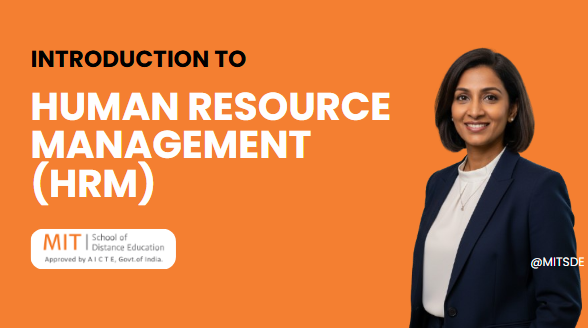
An organization without manpower is just like a vehicle without fuel. An enterprise cannot function properly if it is devoid of talented and highly-productive human resources. Hence, the task of selection and management of human resources is an integral part of every organization. For this, every organization has an HR department headed by an HR manager. In this post, we’ll understand more about HR Management and the duties of an HR.
What is HR Management?
Human Resource Management is a strategic approach that entails to the effective management of people in an organization in such a way that they help in the achievement of laid objectives and growth of the business. The HR department is responsible to identify vacancies in the organization, conduct interviews to fill vacancies, select the right employees and look after their training as well as other needs. HR management aims at maximizing and improving employee’s performance. It primarily deals with the management of people in an organization.
Need for HR Management
An enterprise works efficiently and gains huge profits when different cross-functional departments work properly. This is possible only when employees are deployed for the tasks that match their skills and expertise. This is where the HR department steps in. It is the task of HR managers to select the right employees, train them, allocate the task to them and manage them. They are also responsible to direct the employees.
The staff members are not able to work at their optimal productivity level every day. They may be low sometimes and at times, they might be highly productive. It is the task of HR managers to ensure that employees are kept motivated so that they perform well. HR managers should always maintain a good relationship with employees so that they work in a proper direction.
Major Functions of Human Resource Management
Let’s go through some of the major functions of HR Management:
Strategic Management
HR managers focus on meeting the long-term and short-term objectives of the organization for which it needs to maintain an effective strategy.
Development of Human Resource
The responsibility of recruitment, training and development of all the employees is laid at HR professionals.
Payroll Management
It is the task of HR managers to maintain financial records of employees including their salaries, incentives, paid leaves, etc. They also look after other employee compensation including insurance, medical facilities, etc.
Career Prospects of HR Managers
It is quite evident that the success of a business is all dependent upon the effective management of its resources primarily human capital. Hence, all organizations seek Human Resource Managers to handle the task. HR managers work in close cooperation with the organization’s top-level management to ensure the development of employees and to formulate the organization’s strategic planning. They create a connection between the employees and the organization’s middle and lower-level management. A successful HR manager requires skills such as patience, better communication, flexibility, and negotiation skills.
HR managers are significant for organizations. So there are huge openings for adept professionals and even HR Managers receive decent pay. According to a survey held by the U.S. Bureau of Labor Statistics in 2013, the average annual salary of HR professionals was found to be $56,600, whereas the top professionals earned $96,500. On the same hand, the HR managers’ average yearly salary was disclosed at $100,800 and that of highly-experienced professionals was $177,500.
HR is a blooming field. However, one needs to be skills appropriately to capitalize on its wide range of opportunities. If you aspire to take charge of the HR manager and perceive it as your future, then you should first acquire requisite skills and knowledge. If you are looking for the most updated industry-specific course offering practical know-how then you should choose from PGDM, PGDBA and PGCM courses offered by MIT School of Distance Education (MIT-SDE).



